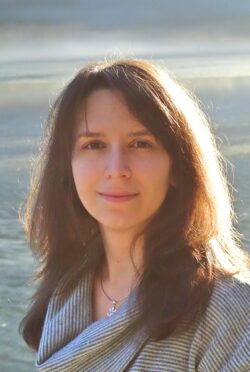
Event
The Committee on the Status of Female Researchers and Researchers with Small Children of the Hungarian Young Academy will host a webinar on the topic of mental well-being on 22 May 2024 from 12:00-13:30 under the title “Women in Leadership”. The event will feature plant biologist Katalin Solymosi and ecologist Zsófia Horváth who will share their thoughts on the topic, with HYA member Karolina Eszter Kovács, psychologist, moderating the session.
Location:
https://zoom.us/j/91658163073?pwd=ZEF5NVpOemVVMzN1NWJxQkxYY1hidz09
Meeting ID: 916 5816 3073
Password: 724451
Invited speakers:
Zsófia Horváth, ecologist (HUN-REN Centre for Ecological Research, Institute of Aquatic Ecology): Best practices based on international models in leadership (leading research teams)
Katalin Solymosi, plant biologist (Eötvös Loránd University, Department of Plant Anatomy; Young Academy of Europe): Women leaders in science and science policy
Moderator:
Dr. Karolina Eszter Kovács (Debrecen University, Faculty of Humanities, Institute of Psychology, Department of Counselling, Development and Educational Psychology)
About the speakers:

Zsófia Horváth, biologist, received her PhD at ELTE Faculty of Natural Sciences before taking up positions in Austria, Germany and Belgium as a postdoctoral fellow. Since 2021, she has worked at the Institute of Aquatic Ecology of HUN-REN Centre for Ecological Research as the head of of the Biodiversity and Metacommunity-ecology Research Team.

Katalin Solymosi, plant ecologist, works as an assistant professor at ELTE Faculty of Natural Sciences, Department of Plant Anatomy, where she leads the ELTE Plastid Biology Lab. Besides her engagements in professional scientific organisations (e.g. Hungarian Biophysical Society), she has also been active in science policy since 2018. She has fulfilled a leading role primarily in the work of domestic (Hungarian Young Academy) and international organisations (Young Academy of Europe) focusing on the situation of early- and mid-career researchers.
The Hungarian Young Academy (HYA) places a great emphasis on the role of mental health in the life of researchers. We consider it essential to talk about challenges, stress and responsibilities imposed on researchers throughout their scientific careers – especially as female leaders. We strive to gain useful information from each other’s experience and coping strategies, especially with a focus on the challenges faced by female researchers in leading positions.
In the spirit of the above, we organise regular lectures on the topic of research careers, which also touch upon questions of mental health.
In October 2021, in the first part of the HYA webinar series on research careers, Dr. Gábor Kismihók, head of the Researcher Mental Health Observatory COST Action gave a talk focusing on work-life balance and the mental health and well-being of researchers. The second chapter of the series (held last year) featured Dr. Bernadette Kun, psychologist, and Dr. Mária Hoyer, clinical psychologist and addictology specialist, who talked about the theoretical and practical background of work addiction and burnout, and the possibilities of diagnosis and treatment. The topic explored by the third part of the series held in November 2023 was the impostor syndrome, where Anett Felházi, clinical psychologist and psychotherapist spoke about the theoretical and practical aspects of the problem.
Abstracts
Zsófia Horváth, ecologist (HUN-REN Centre for Ecological Research, Institute of Aquatic Ecology): Best practices based on international models in leadership (leading research teams)
Nowadays more and more Hungarian institutions and research teams draw on international best practices in their work that the leaders of the research teams have in most cases acquired abroad and subsequently introduced in their local work environment. In her talk, Zsófi Horváth will present such examples based on her own experience, elaborating on their importance both from the perspective of team leaders and young researchers who are members of the group. These are soft skills that Hungarian higher education and its institutions fail to to directly endow young researchers with, and as the latter advance in their academic career and become thesis supervisors and then team leaders, they suffer from the lack of these points of reference to fall back on, especially at the beginning of their career. One of the specific goals of this lecture is to help this topic take a more central stage both formally and informally in domestic scientific life.
Katalin Solymosi, plant biologist (Eötvös Loránd University, Department of Plant Anatomy; Young Academy of Europe): Women leaders in science and science policy
In her talk, Katalin Solymosi will briefly share her views on the situation of female researchers in Europe and Hungary, especially concerning leading research teams and undertaking other leading roles. In addition to the challenges experienced in this context (e.g. work-life balance), she will also talk about existing possibilities in scientific public life, and more specifically, room for grassroots initiatives. It is important to highlight the role of a supportive family background and workplace environment, the negative effects of workplace micro-aggressions and untitling, the question of visibility, as well as the crucial role of mentoring, supportive measures and awareness for those embracing a research career.